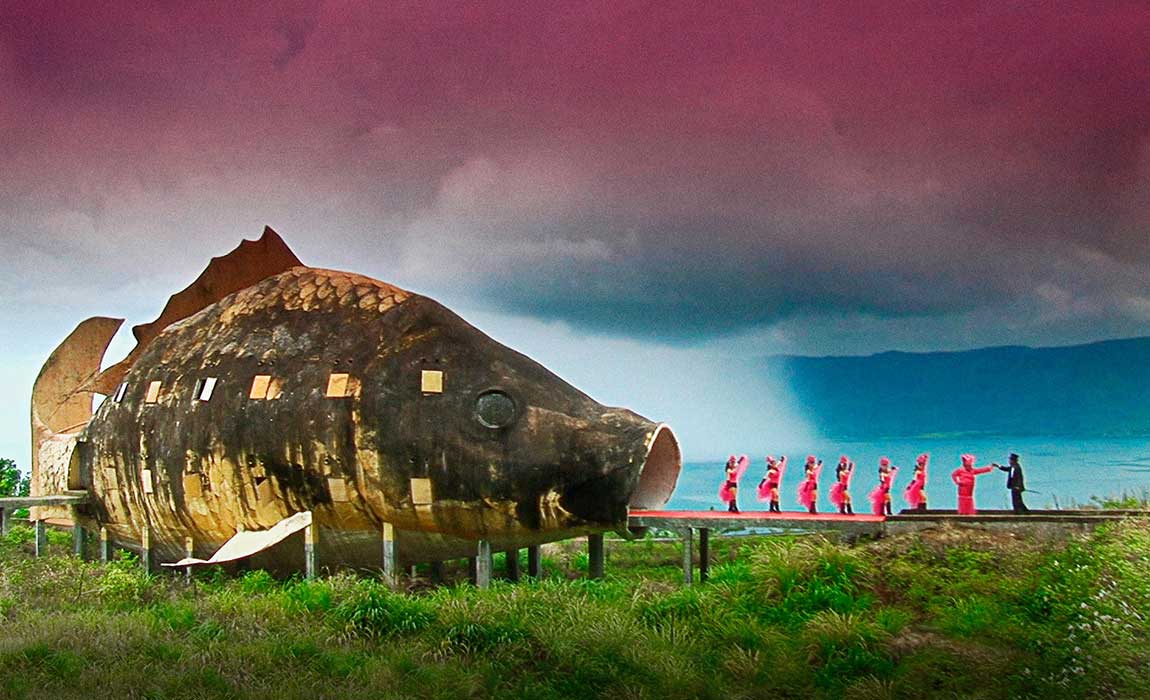The Act of Killing
The film of the year, if not the decade, if not documentary history.
Overview
The Act of Killing is one of those movies that in its very form is something new. While filming survivors of the 1965-66 Sumatran massacre, Joshua Oppenheimer discovered that the perpetrators, now elder statesmen, remain openly proud of their crimes — and eager for fame.
So he takes the project in a new direction (the survivors, for good reason, weren't keen to appear on camera anyway). Oppenheimer has the perpetrators join the film, scripting and starring in re-enactments of their murders. They jump at the chance; they're fans of American movies. The Act of Killing then becomes a documentary with fictionalised elements that, by virtue of what they reveal about their subjects, are a mode of deep-digging documentary in themselves.
It's chilling but also achieves a surprising effect, leading Werner Herzog to say "I have not seen a film as powerful, surreal, and frightening in at least a decade...it is unprecedented in the history of cinema." He signed on to executive produce, along with documentary king Errol Morris.
No synopsis can quite convey how extraordinary this all is. We in Australia, Indonesia's closest neighbours, have barely any memory of the genocide that took 1 million lives. The current Indonesian government still has links to the militias of 50 years ago, and in a speech by a senior politician, we see him further the ideology of the 'gangster', a libertarian delusion that alleviates the war criminals' consciences. They're welcomed on a daytime TV show as if they were pop stars, while the cheery host recognises their achievements in finding "a new, more efficient system for killing Communists".
There are so many of these extraordinary scenes — too many, probably. It's hard to figure out what could have been cut, but there is a point in the middle at which it becomes a catalogue of bewilderment rather than a purposeful trajectory — and the running time is 159 minutes, so.
US-born, Copenhagan-based Oppenheimer's real strength is his knowledge of Indonesia — he's spent a lot of time there, speaks the language without an interpreter and was able to really relate to his subjects as human beings. They're comfortable and candid around him, without his having to trick them into participating.
He's also proved to have a great eye for character, as his main focus, Anwar Congo, is both charismatic and very easy to empathise with. Those spotlighted around him, too, serve to elucidate other sides of his character. It's challenging. We're made to wonder, who is more evil, the murderer who is an ostentatious true believer in the cause? The pragmatist quietly living out his days in great wealth? Ultimately, it's hard to believe there are evil people at all — just crazy, heightened situations with patterns that repeat all over the world. The Act of Killing is deeply humanist that way.
There's no point dwelling on some minor drawbacks; The Act of Killing is the film of the year, if not the decade, if not documentary history. Just go see it already. It's simultaneously being disseminated in Indonesia via private screenings and sparking, you can imagine, a big conversation. Proof that sometimes, art changes everything.
Read our interview with director Joshua Oppenheimer here.
https://youtube.com/watch?v=zJ5_JAgoZ5Q





